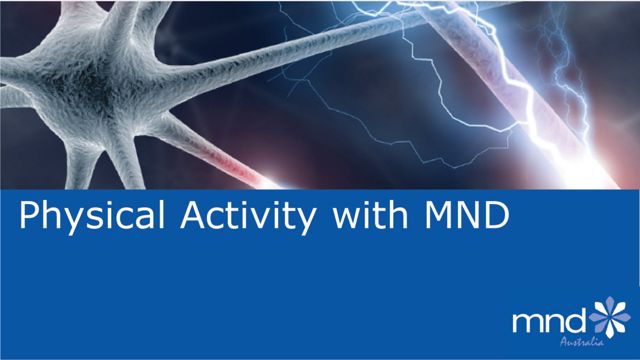
Physical Activity and MND
Motor Neurone Disease (MND) AustraliaMay 2023





This resource has been published by a Partner, and is hosted on an external website. Ausmed is not responsible for the content or advertising you may see. Content may require additional payment.
Enquire about this resource on Motor Neurone Disease (MND) Australia